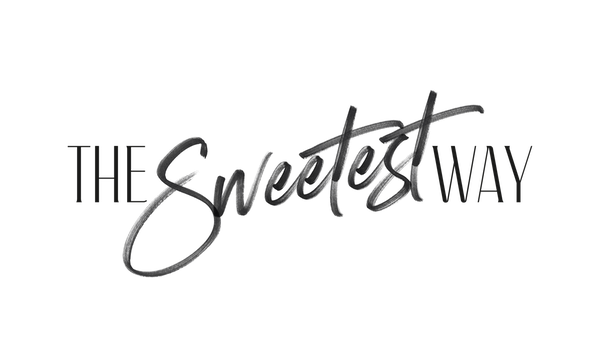Blogging–it ain’t what it used to be. But that’s actually a good thing, right? Nothing that’s worthwhile ever stays the same. It grows and evolves, accommodating new trends and demands, shapeshifting to fit the current market.
Blogging, what was once just a hobby, can now be proudly claimed as a career. Okay, maybe not proudly just yet. Blogging is indeed a viable career path, though, despite the lingering skepticism of the general populace.
And because you can run a blog with little more than a laptop and a WiFi connection, it’s a popular path to achieving a location independent lifestyle. Turning a blog into a thriving business shouldn’t be mistaken for easy, however, and certain personality types will weather entrepreneurship better than others.
Then again, a blog can be started simply for pleasure, too, with no pressure for it to be anything more than a passion project.
Please note: This post contains affiliate links, meaning I may earn a small commission if you make a purchase, at no extra cost to you. Thank you for supporting The Sweetest Way!
So, should you start a blog in 2017? Well, that depends.
If you want to start a blog just for fun, there’s no reason not to–you’ve literally got nothing to lose. A blog hosted on WordPress.com is 100% free and if you get bored of it, you can simply stop writing or delete it.
Here are some excellent reasons to start a blog for fun in 2017:
- You need a creative outlet
- You have a passion for writing, photography, or both
- You want a new way to connect with like-minded people
- There’s a subject you’re seriously passionate about and you want a space to talk about it
- You have an excess of knowledge on a particular topic and you think others might find it useful
Get a FREE domain name and professional web hosting for just $3.95/month.
Should you start a blog as a business in 2017? That’s another question entirely.
If you want to become a digital nomad, a blog will probably fit nicely into your income strategy at some stage, but by no means does it have to be the star of the show.
In my case, the blog came first but made me absolutely no money in the beginning, so I turned to freelancing and consulting to support myself during my travels until the blog was earning a significant amount.
Plus, there are tons of ways to make money online that don’t require a blog at all.
Of course, if you’re still set on blogging and want to start sooner than later (and you have the passion for everything that goes along with it, including writing, photography, and mastering social media), then by all means, forge on ahead.
Here are some excellent reasons to start a blog as a business in 2017:
- You know the 9 to 5 grind isn’t for you and you want to try something different
- You are an expert on a certain topic and want to share your knowledge
- You want to work online and use your blog as a springboard to other opportunities
- You want to help people
Starting your own online business in the form of a blog is an excellent way to become location independent, but if you’re in it for the wrong reasons, I hate to say it, but your blog is probably going to fail.

Eldar Nurkovic/Shutterstock
And when I say “the wrong reasons” here, yes, I very much mean it in the same way they use it on The Bachelor–you’re only in it for yourself.
If you have no intention of helping others through your blog, then you have no business starting one (see what I did there?).
Here are some terrible reasons to start a blog as a business in 2017:
- You want to make a lot of money
- You think blogging is easier than a “real job”
- You don’t want to help anyone but yourself
If substantial income is your primary goal, then blogging is not your golden ticket. Sure, there are the poster children of blogging who bring in six, even seven figures a year, but the sad truth is, only 5% of bloggers earn a full-time income from blogging alone.
For most bloggers, their site brings in a small portion of their monthly earnings, but the bulk comes from outside ventures such as freelancing, consulting, or selling goods and services. To make money from blogging, it takes a true hustler with grit and determination.
I’m not saying this to discourage you from starting a blog; I simply hope to inject a dose of reality into your expectations for blogging as a business in 2017. It’s not as easy as some people make it look, and it’s certainly no magic bullet.
If, on the other hand, your primary goal is FREEDOM, then a blog is an excellent resource. If you want to travel the world and work from anywhere, starting a blog can help you get there.

Viktor Gladkov/Shutterstock
A blog can provide a source of side income to support you as you build up your primary business, or as mentioned above, it can act as a springboard to bigger and better opportunities.
Take freelance writing as an example. If you want to be a freelance writer, having a blog will allow you to showcase your best work; your blog will act as your online portfolio. The same could be said for any other creative endeavor such as photography, web design, or videography.
A blog can be the place where you demonstrate your expertise in a specific area, helping you capture leads for your consulting business. It can be a place for connecting with other remote workers. In 2017, a blog can be just about anything you want it to be.
Perhaps you have no plans to travel and you just want to generate some additional income so you can live a life you love–a blog can help you achieve this, too.
Blogging not sparking your interest as a career? Learn how to land your dream remote job instead.
Plan to start a blog in 2017? Here are a few things to consider.
Choose your niche very carefully.
As we’ve already discussed, blogging simply isn’t what it used to be. Whereas previously, in a less saturated market, a blog stood a good chance of being discovered organically even with a broad focus, this is far less likely to happen today.
Start a blog on internet marketing, traveling as a couple, or gluten-free recipes, and you’ll get lost in the sea of blogs that came before you. There are too many to compete with, and they’ve got a huge headstart on you.
The solution? Niche the f*ck down.
The quickest way to make a new blog stand out is to carve out a niche so specific that it didn’t even previously exist. As an example, don’t start a blog on solo female travel in 2017, start a blog on solo female travel for introverted vegan marathon runners.
Hyperbolic, but you see my point. You’ll exclude a lot of people by creating an ultra-specific niche, but the people you do attract will become extremely loyal because of how strongly they identify with the content you’re creating. It’ll be so tailored to their needs that it’ll become their go-to resource over the rest of the solo female travel blogs out there.
The goal of blogging in 2017 should not be to have the biggest and best audience around. Your aim should be to connect with a small, highly targeted audience on a deep and meaningful level.

Jacob Lund/Shutterstock
Set aside some money to invest in your new blog upfront.
While startup costs like registering your domain name and getting professional web hosting are fairly minimal, it would behoove the new blogger to have some money set aside to invest in your blog from the beginning.
Education should be your top priority if you’re unfamiliar with topics like Search Engine Optimization (SEO), social media marketing, and affiliate marketing.
Courses I have personally tried and recommend:
- How I Hit #1 on Google: The 2017 Complete SEO Course
- Pinterest Organic Traffic Avalanche
- Strategies Worth Sharing: How I Grew My Facebook Page from 2,000 to 100,000 in 5 Months
- Making Sense of Affiliate Marketing
It would also be of great benefit to have a small monthly marketing budget to help your site reach new eyeballs (i.e. customers). You can pay for ad space on sites with a similar target audience, promote your high-performing pins on Pinterest, or promote your content on Facebook.
You will also want to invest in an email service provider so you can start building your mailing list (your most loyal audience). I personally use and recommend ConvertKit–just $29 per month for your first 1,000 subscribers.
Get a head start on social media.
When I eventually start my next blog, I’ll do things very differently. I’ll set up my social media profiles long before the blog ever launches, curating content similar to what I plan to produce and building an audience in advance.
I’ll realize, too, that some platforms will require me to “pay to play” in order to gain any traction, given how the algorithms are now stacked against business pages (I’m looking at you, Facebook).
I’ll use the feedback I get from my social pages to inform my decisions about what kind of content to create. I’ll really listen to what my audience wants from the very beginning and give them exactly that.

Shanghainese/Shutterstock
I’ll know my niche and stay true to it. Every post will be on-brand, polished, and professional.
In 2017, your blog needs social media. Some might even argue that your social media presence is more important than the blog itself. Fail to take advantage of the free marketing and valuable research tools that social media platforms provide, and your blog will fail, too.
Focus on Pinterest in the beginning.
If I can offer one single piece of advice to new bloggers, it’s to get comfortable using Pinterest for your business before tackling anything else.
Pinterest stands to send you more traffic, more consistently, than any other platform. Master it early, and watch your business grow.
There’s a lot of conflicting information about how to find success on Pinterest, so my next suggestion is to invest in a Pinterest marketing course. Advice straight from the experts, in one convenient package.
I’ve found Pinterest Organic Traffic Avalanche to be the most comprehensive, offering valuable tips no other Pinterest experts are willing to share. I’d been using Pinterest for business for years when I finally decided to invest in this course, and even for someone like me, there was so much valuable information.
Course creators Alex and Lauren will teach you how to use Pinterest to grow your email list, to increase your earnings from affiliate marketing, and to drive consistent, quality traffic to your site. They used the very same strategies to start earning five figures per month from their fitness blog within the first year.
If you’re not ready for an advanced course, I cover the need-to-know basics in this post.
It’s not about you.
Remember, your aim when starting a blog as a business is to help other people, so your focus should largely be on your audience and helping them solve their problems.

KieferPix/Shutterstock
A blog written purely in a “this is what I did today” diary style is a hard sell as a business, and unless you’re already famous, no one’s going to care.
Share your personal anecdotes if your readers can learn a valuable lesson from your experiences, but otherwise save your life’s little details for a personal blog that’s just for fun.
Additionally, pay close attention to what type of content is resonating with your audience the most, and then create more of that. It’s less about what you enjoy writing and more about what they want to read.
Check out this post for more ideas on creating blog content that doesn’t suck.
Here are my best blogging resources for beginners if you’re hungry for more:
- The Tools You Need to Build a Beautiful Blog
- Blogging for Beginners: Master These 5 Skills Right From the Start
- My Blog Post Checklist: 25 Things Every Blog Post Must Have Before I’ll Hit Publish
- How to Quickly Create Multiple Pinterest Pins: PicMonkey & Canva Tutorials
- How I’m Growing My Online Business with ConvertKit
Looking to the Future
If remote work, location independence, world travel, or the digital nomad lifestyle have ever crossed your mind as potential future endeavors, then perhaps it’s time to consider how a blog could play a role in helping you achieve this.
It’s no secret that remote work, location independence, and the “gig economy” are on the rise. People are finding the independence they achieve from this way of living to be satisfying enough to outweigh the cons (like limited access to benefits).
Those who value flexibility in their schedules and the option to travel at any time are afforded those freedoms in spades. Young people are realizing there’s no need to put their career on hold if they want to see the world–as it turns out, we really can have both.
Websites, by my estimates, will become the currency of online workers. Having one will prove valuable in finding new clients and leads, networking with the right people, and putting your best, most professional foot forward in a way your LinkedIn profile simply cannot.
Being the owner of a beautiful, functional website will demonstrate your aptitude for learning and applying online skills. It will be your digital business card and resume. It can provide an additional source of income.
The barriers to entry are so low and the potential benefits so great that it’s hard to find reasons not to have a website as an online worker in 2017.
All I know for sure is, having my own blog is what allowed me to achieve the lifestyle I now enjoy. I wake up each morning excited to take on the day. I’ve traveled more than I ever would have with a traditional job. My earning potential is unlimited.
But best of all, I feel truly free.
Ready to start your own blog in 2017? Get a free domain and professional web hosting for as low as $3.95 per month.
Featured image: Viktor Gladkov/Shutterstock



